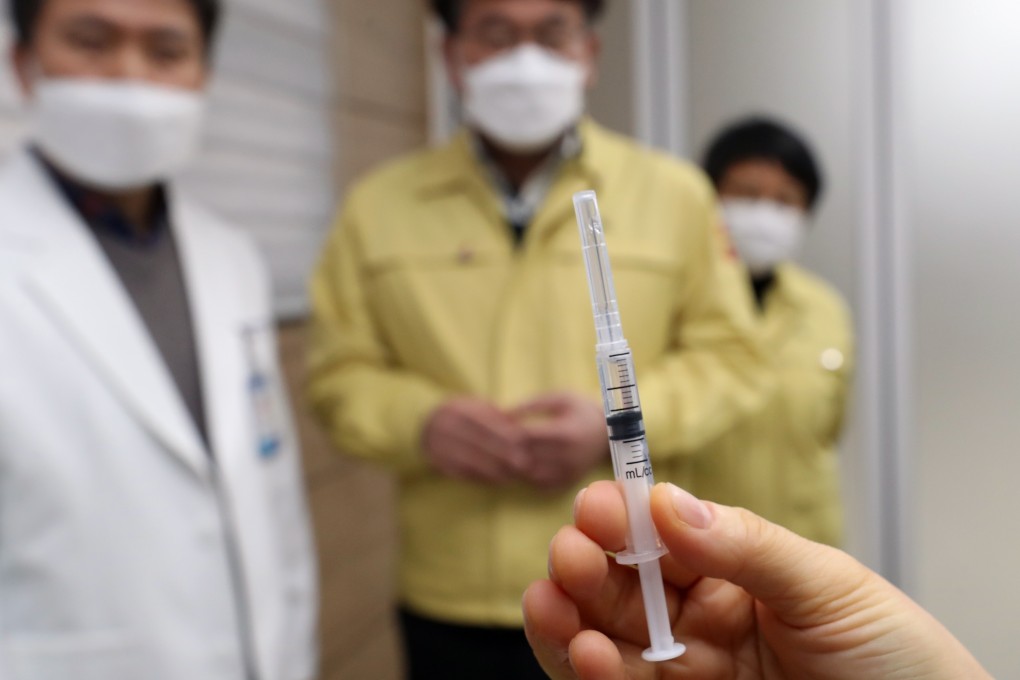South Korea investigates deaths of two who received Covid-19 vaccine
- Both people had pre-existing conditions and died within days of receiving the AstraZeneca coronavirus vaccine
- Elsewhere, Australia is extending its year-long international border closure by at least three months to mid-June and Tokyo looks to extend its emergency

A 63-year-old nursing home patient with cerebrovascular disease, developed symptoms including high fever, after being given the vaccine four days ago, Korea Disease Control and Prevention Agency (KDCA) director Jeong Eun-kyeong told a briefing.
The man was moved to a larger hospital on Tuesday, but died after showing symptoms of blood poisoning and pneumonia, Yonhap news agency reported.
Another nursing home patient in his 50s with a cardiac disorder and diabetes died on Wednesday after suffering multiple heart attacks, having received the vaccine a day earlier, the agency said.
KDCA said it is investigating the cause of the deaths, but did not confirm any causal relationship to the vaccine. The agency earlier said it will provide compensation of over 430 million won (US$383,466) for deaths from the Covid-19 vaccine.
“KDCA is conducting epidemiological surveys with relevant local authorities … to confirm any link with inoculation,” Jeong said.